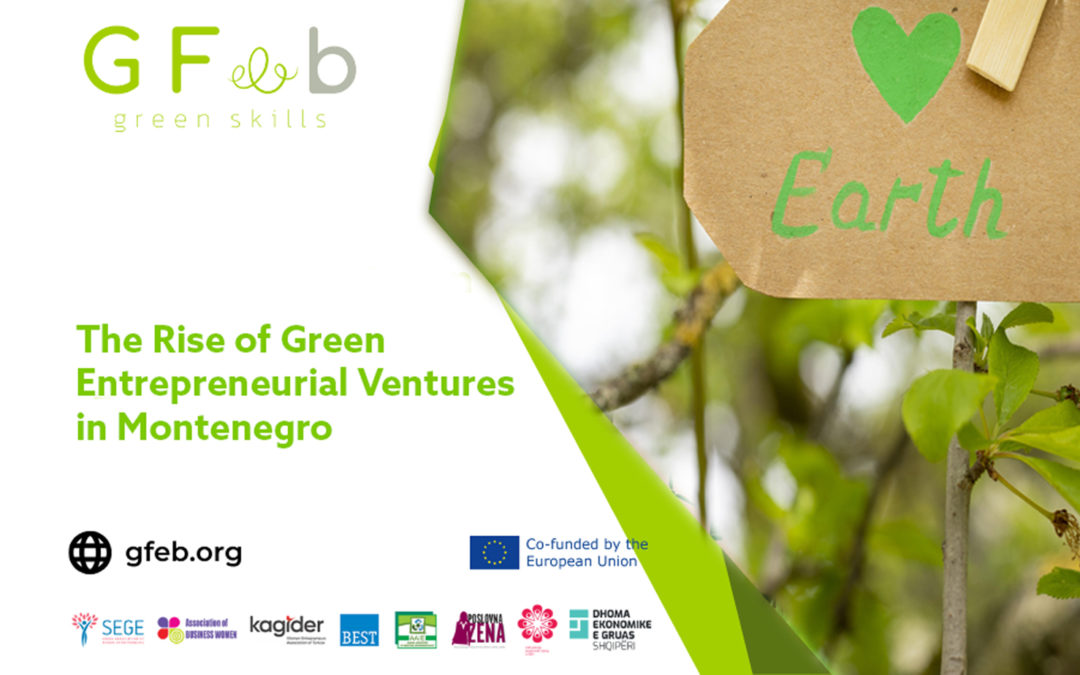The Rise of Green Entrepreneurial Ventures in Montenegro
Montenegro, often referred to as an “ecological state” in its own constitution, is witnessing a dynamic shift towards Green Entrepreneurship. As a nation defined by its dramatic mountains, pristine coastline, and national parks, sustainable development isn’t just a political goal—it’s an economic imperative. Green entrepreneurial ventures are capitalizing on this unique natural capital, driving economic growth while simultaneously safeguarding the environment.
Key Sectors Driving Green Innovation
Green businesses in Montenegro are primarily concentrated in areas that directly leverage the country’s natural assets and address local challenges:
- Ecotourism and Sustainable Hospitality
This is arguably the most vibrant sector. Entrepreneurs are moving away from mass tourism models and focusing on high-value, low-impact experiences.
- Rural Household Revitalization: Small businesses are renovating traditional stone houses and katuns (shepherd huts) into certified rural guesthouses. These ventures often use solar power, rainwater harvesting, and waste separation systems, providing tourists with an authentic and responsible immersion into Montenegrin culture and nature.
- Adventure and Low-Impact Tourism: Companies specializing in guided hiking, kayaking, cycling (often using e-bikes), and birdwatching operate strictly within national park regulations, positioning themselves as guardians of the environment they promote.
- Eco-Camps and Glamping: Offering sustainable accommodation in areas like the Durmitor or Prokletije mountains, minimizing built infrastructure and promoting strict ecological standards among guests.
- Organic Agriculture and Value-Added Processing
Given the abundance of untouched land, green ventures are finding success in producing premium, certified organic products.
- Organic Certification: Entrepreneurs are actively seeking national and international organic certifications for produce, aiming for higher profit margins in urban centers and export markets.
- Wild Herb and Forest Fruit Processing: Local businesses are built around the sustainable collection and processing of medicinal herbs, wild berries, and forest mushrooms. This sector often provides vital employment for women and older residents in remote rural areas.
- Short Supply Chains: Initiatives are being developed to connect organic farmers directly with local hotels and restaurants, drastically cutting down on transportation emissions and ensuring the authenticity of Montenegrin cuisine.
- Renewable Energy and Energy Efficiency
While large-scale energy projects are often state-led, Small and Medium Enterprises (SMEs) are crucial in decentralized green solutions.
- Solar Installation and Maintenance: Numerous smaller firms have emerged to support government programs (like the Solar 500+ scheme), specializing in the installation, servicing, and maintenance of photovoltaic systems for households and businesses.
- Energy Audits and Retrofitting: Consultancy firms offer services to improve the energy efficiency of existing buildings, helping businesses and municipalities reduce operational costs and their carbon footprint.
Overcoming Challenges: A Collective Effort
Despite the immense potential, green entrepreneurs face significant hurdles:
- Infrastructure Gaps: Poor road infrastructure and unreliable internet connectivity in remote, high-potential eco-tourism zones limit scalability.
- Access to Finance: Securing initial capital remains difficult for small startups. While the Investment and Development Fund (IRF) offers specific green credit lines, awareness and complexity remain a challenge.
- Bureaucracy and Permitting: Entrepreneurs often cite lengthy administrative processes for obtaining necessary permits (especially for construction and energy projects) as a major impediment.
The solutions frequently involve public-private partnerships:
- Local Action Groups: Initiatives in municipalities like Plav and Gusinje, often supported by local NGOs, are forming inter-sectoral working groups to pressure local government for streamlined permitting and infrastructure upgrades.
- Diaspora Engagement: The highly influential Montenegrin diaspora is increasingly being tapped to invest capital and transfer knowledge back into local, sustainable ventures.
- Social and Green Integration: Many green ventures are designed as social enterprises, tackling environmental issues (like waste collection) while simultaneously addressing high unemployment among vulnerable groups.
The Core Role of Women in Green Ventures
Women are not just participants; they are often the innovators and implementers of green business practices, especially in the country’s vulnerable rural and mountainous regions.
- Leading the Ecotourism Sector
In the fast-growing ecotourism sector, female entrepreneurs often hold the competitive edge due to their focus on quality, hospitality, and authenticity:
- Guesthouse Management: Women predominantly run the small, certified rural guesthouses and ethno-villages that are the backbone of sustainable tourism in areas like the north (Plav, Gusinje, Žabljak). They ensure that operations adhere to strict environmental standards, including effective waste separation, water conservation, and minimal use of harmful cleaning products.
- Authentic Gastronomy: They preserve and commercialize traditional, local food culture through the “farm-to-table” model. By sourcing ingredients from their own organic gardens or local female farmers, they minimize transport emissions and provide guests with an authentic, low-impact dining experience.
- Driving the Organic Supply Chain
Green entrepreneurship provides a viable economic alternative to traditional, less sustainable farming, and women are crucial in this transition:
- Organic Certification: Many of the small family farms seeking organic certification for herbs, forest fruits, and specialized produce are led by women. This work elevates the economic value of their products while protecting the local environment from chemical treatments.
- Value-Added Processing: Women often establish small processing businesses (e.g., producing herbal teas, natural cosmetics, or preserves) which creates stable income and utilizes natural resources sustainably.
- Fostering Social and Community Impact
Green entrepreneurship frequently overlaps with social entrepreneurship in Montenegro, where women use business models to solve community problems:
- Rural Employment: By creating successful small businesses, female entrepreneurs directly tackle high unemployment and emigration among young people and women in rural areas. Their ventures act as anchors, demonstrating that sustainable livelihood is possible outside major urban centers.
- Social Inclusion: Women are often the founders and managers of social enterprises focused on ecological goals, such as cooperatives for handicrafts made from recycled materials, which provide employment opportunities for vulnerable or marginalized groups.
Challenges and Support
While the contribution is significant, female green entrepreneurs face specific challenges, including limited access to finance, lower digital literacy (especially in older generations), and the traditional burden of unpaid care work.
These issues are being addressed through:
- Targeted Funding: National programs and international donor projects (like those from the EBRD and EU) increasingly offer gender-specific loan and grant schemes for green projects.
- Mentorship and Training: Local NGOs and business associations offer specialized training in green business planning, digital marketing, and sustainable management tailored to the needs of rural female entrepreneurs.
In essence, women in Montenegro are positioning themselves at the forefront of the green transition, using their deep connection to the local environment and community focus to build an economic future that is both profitable and protective.
Conclusion
Green entrepreneurial ventures are not merely a sideline trend in Montenegro; they are essential to achieving true economic resilience and sustainability. By innovating within the constraints of its delicate environment, the nation is proving that ecological preservation and sound business strategy can be mutually reinforcing. The continued success of these ventures hinges on robust government support for infrastructure, simplified bureaucracy, and a sustained focus on local human capital development.

